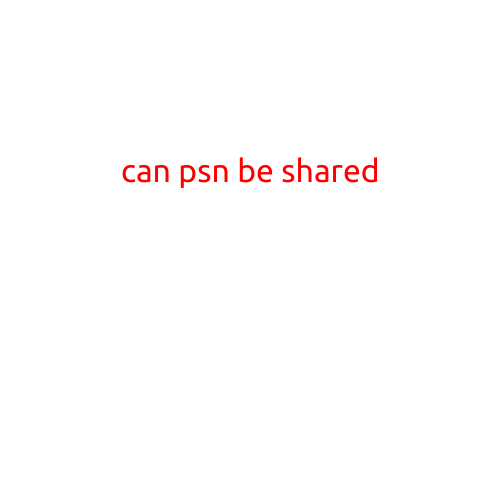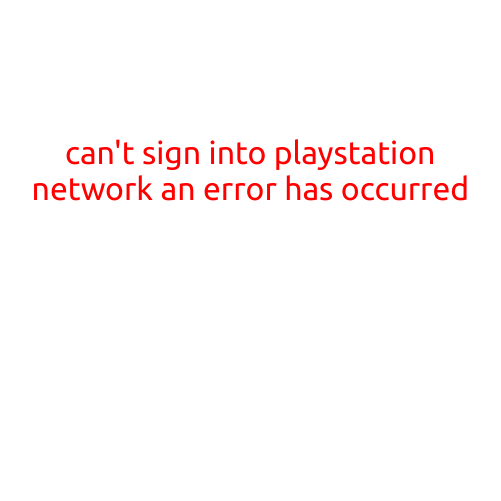
Can PSN be Shared?
As a gamer, having multiple PlayStation Network (PSN) accounts can be both convenient and confusing. With the rise of online gaming and streaming, many players want to know if they can share their PSN account with friends, family members, or even strangers. In this article, we’ll delve into the world of PSN sharing and explore the possibilities and limitations.
Sharing Accounts: Is it Allowed?
Unfortunately, sharing PSN accounts is not allowed or recommended by Sony. PSN accounts are linked to the user’s PlayStation console and are intended for personal use only. Sharing an account can lead to technical issues, such as login problems, game corruption, and even account suspension.
Why is Sharing PSN Accounts Not Recommended?
There are several reasons why sharing PSN accounts is not recommended:
- Account Security: Sharing an account increases the risk of account hacking and security breaches. With multiple people logging into the same account, the chances of identity theft, stolen credit card information, and other sensitive data being compromised increase.
- Game Licenses: When you purchase a game, you’re buying a license to play the game on the PSN account linked to that console. Sharing an account can lead to licensing issues, as multiple users may be playing the same game simultaneously, causing technical problems and disrupting the gaming experience.
- Profile and Progress: Each PSN account has its own unique profile, game saves, and progress. Sharing an account can result in confusion, as multiple users may have different game saves and progress, leading to frustration and disappointment.
Alternative Options
While sharing PSN accounts is not recommended, there are alternative options to consider:
- Multi-User Access: In some cases, multiple users can access a single PSN account on different devices. This is usually the case when sharing with family members or friends in the same household.
- Game Sharing: Many games offer game sharing features, allowing players to share their game with friends or family members. However, this requires the friend or family member to have their own PSN account and to be connected to the same network as the original player.
- Local Co-op: For games that support local co-op, multiple players can play together on the same console, eliminating the need for account sharing.
Conclusion
In summary, sharing PSN accounts is not recommended due to security concerns, licensing issues, and profile and progress problems. Instead, consider alternative options such as multi-user access, game sharing, or local co-op. By respecting the boundaries of PSN accounts, we can ensure a seamless and enjoyable gaming experience for all.





